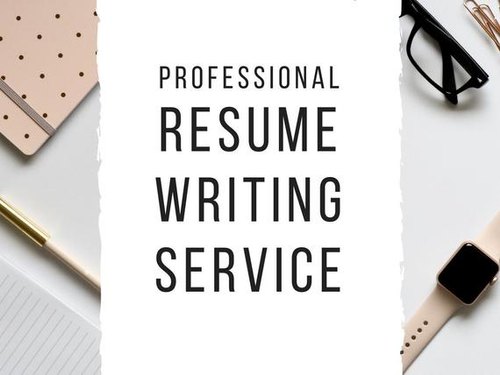Tips for writing an effective resume

Use simple language and clear formatting
When writing your resume, use simple language and clear formatting. This will help to ensure that your resume is easy to read and understand. Use short, concise sentences and bullet points to list information. Be sure to proofread your resume before sending it out to potential employers. By following these tips, you can create an effective resume that will help you stand out from the competition.
Highlight your skills and accomplishments
When you’re writing it, be sure to highlight your skills and accomplishments. Here are some tips to help you write an effective resume:
1. Start with a strong objective or summary statement. This will give the reader an overview of your skills and experience.
2. Be clear and concise. Use simple language and bullet points to make your resume easy to read.
3. Highlight your accomplishments. Include any awards, publications, or other professional achievements that show off your skills and experience.
4. Use keywords. Choose words that accurately describe your skills and match the keywords used in job postings. This will help your resume stand out when employers are searching for candidates.
5. Tailor your resume for each job application. Customize your resume to fit the specific requirements of the job you’re applying for.
Tailor your resume to the job
When you’re applying for a job, you want your resume to stand out from the rest. One way to do this is to tailor it specifically for the job you’re applying for. Here are some tips on how to do this:
1. Start by looking at the job description and requirements carefully. Make a list of the key skills and qualifications that are required for the role.
2. Take a look at your own skills and experience and see how they match up with what the employer is looking for. If there are any gaps, consider ways to fill them (for example, through additional training or volunteering).
3. Highlight the most relevant parts of your resume, including specific examples of times when you’ve used the required skills successfully.
Use keywords Use keywords.
When it comes to resumes, using the right keywords can make all the difference. Resumes are often scanned by computers for these keywords before they’re even seen by human eyes, so it’s important to use them liberally. But which keywords should you use?
First, take a look at the job listing and see which skills and qualifications are required or preferred. These are usually good candidate keywords. In addition, choose a few keywords that describe your best professional qualities. For example, if you’re a fast learner who is also very organized, “quick study” and “detail oriented” could be two good ones to use.
Once you have your list of target keywords, sprinkle them throughout your resume in strategic places like the summary section and within descriptions of your work experience.
Check for grammar and spelling errors
If you’re applying for a job, you want to make sure your resume is polished and free of any grammar or spelling errors. Here are a few tips to help you write an effective resume:
1. Use proper grammar and proofread it before sending it.
2. Use action words to describe your responsibilities and accomplishments.
3. Highlight your skills, experience, and education that are relevant to the job you’re applying for.
4. Keep your resume concise and focus on the most important information.
5. Avoid using any jargon or abbreviations that the employer might not understand.
6. Use a professional email address and voicemail message when submitting it.
When writing a resume, it is important to keep in mind what employers are looking for. Here are some pointers to help you make your CV stand out:
1. Strong objectives or summaries should come first. This should be a concise summary of your experience and potential contributions to the company.
2. Use keywords throughout your resume. Make sure to use industry-specific keywords so that it comes up in relevant searches.
3. Highlight your accomplishments. Don’t just list your job duties; also include any special projects or achievements that you spearheaded during your tenure.
4. Keep it concise. The maximum length for a resume is two pages. Leave out everything that doesn’t directly pertain to the position you’re applying for and only include the information that is most pertinent.
5. Proofread!
Resume tips:
Resumes are often viewed as boring and tedious, but they don’t have to be! Here are some pointers to improve the impact of your resume:
1. Start with a strong summary statement. This is your time to catch the employer’s eye and provide an outline of your qualifications.
2. To emphasize your most important qualifications, use bullet points. This makes it easier for the employer to scan it and see what you have to offer.
3. Be specific about your experience and accomplishments. Generic statements like “responsible for XYZ” don’t tell the employer anything about what you actually did in that role.
4. Use action verbs to demonstrate what you can do. For example, “managed,” “created,” “improved,” etc.
5. For each job you apply for, customize your resume.
Formatting:
Whether you are crafting a resume from scratch or giving your current resume a makeover, proper formatting is an essential component to creating an effective resume. The following advice should be kept in mind when structuring your resume:
1. Use clean, simple lines and borders to give it a polished look.
2. Stick to a standard font such as Times New Roman or Arial, and use clear headings to organize your information.
3. Use reverse chronological order when listing your work history, starting with your most recent job first.
4. Be sure to proofread it before sending it out! Typos and grammatical errors can be costly mistakes in the job search process.
By following these simple formatting tips, you can create a strong first impression with potential employers and increase your chances of landing the job you want.
Content:
Content is crucial when it comes to your CV. Here are a few tips to ensure that your resume is packed with the right content to help you land your dream job:
1. Highlight Your Skills and Achievements
Make sure to showcase your skills and achievements prominently on your resume. This is what will set you apart from the competition and show employers what you’re capable of.
2. Tailor Your Resume for Each Job
Don’t just send out the same generic resume for every job opening. Take the time to tailor your resume specifically for each job, highlighting the skills and experience that are most relevant.
3. Keep It Concise and Easy to Read
Your resume ought to be simple to read and error-free in both grammar and spelling.
Length:
There is no one-size-fits-all when it comes to resumes. Its length should be determined by your experience, level of experience, and employment objective.
If you’re a recent graduate or have limited work experience, a one-page resume will do. Even if you have more than ten years of experience, a two-page resume may be appropriate if your experience is relevant to the job you’re applying for.
Here are some tips for writing an effective resume, no matter the length:
1. Start with a strong summary statement that outlines your qualifications and highlights your key strengths.
2. Use bullet points to make your resume easier to read and scan.
3. Tailor your resume to each job you apply for by using keywords from the job description.
4. Make sure your resume is error-free and professional-looking.
5. Don’t include personal information like age, marital status, or religion unless you know the employer will appreciate it. 6.
Conclusion:
When it comes to writing an effective resume, there are a few key tips to keep in mind. First and foremost, be sure to tailor it to the specific job you are applying for. Generic resumes are much less likely to get noticed by employers. Second, be careful to emphasize your most pertinent qualifications and experience. And finally, don’t forget to proofread it before sending it off – typos and grammatical errors will not impress potential employers.
If you follow these simple tips, it will stand out. Customizing your resume for each job application may help you land your dream job.







